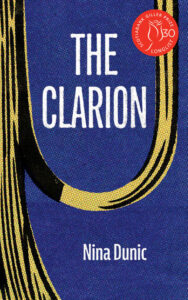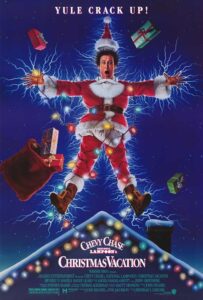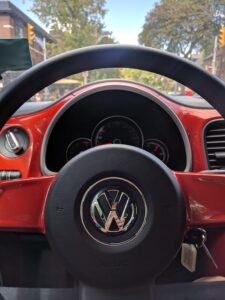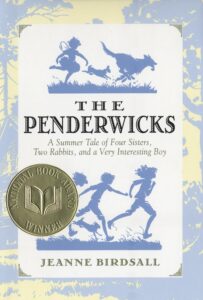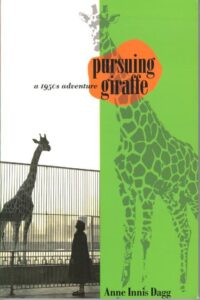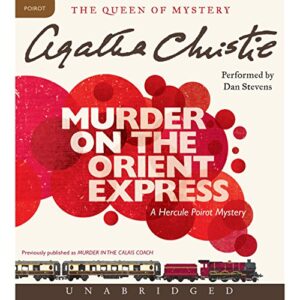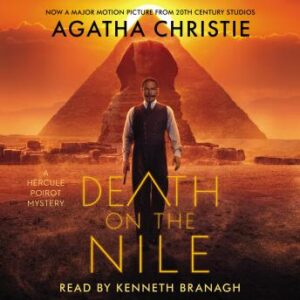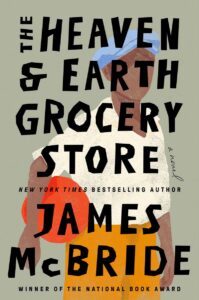December 6, 2023
No Strong Feelings
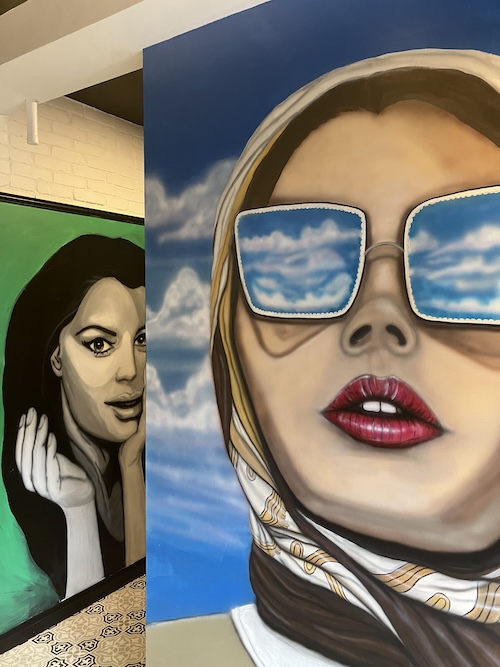
I got out of the pool on Monday in the company of this woman I’d always considered part-mermaid. She doesn’t swim as much as bob around in the pool with the most contented look on her face, a contented look I understand, because this is swimming, but on Monday she wasn’t content at all, instead she was furious. There was all this hair floating around the pool, she said, and she was right, it was gross, a clump had wrapped around my wrist while I was doing the back-crawl, and the woman was imploring me to send a letter of complaint, demanding that rules regarding long hair being tied back be better enforced, and I promised her I would, but I never will, because I just don’t care, and I felt that freedom as I left her, of not being burdened by unnecessary rage. Of all the problems in the world, I considered, if this one’s the worst, we’re pretty lucky, and later I was talking to my husband—who’s a member of the gym as well—about how we always hear people complaining about the facilities and we just can’t believe it, because this is the first time we’ve ever belonged to a gym where people don’t break into lockers and where no one is going to steal your boots.
No strong feelings. I think about this a lot. I’ve written before about how a decade on Twitter trained my brain to only have strong feelings, very unnecessary rage, and how my brain broke in the end, and it’s been a long, slow journey back to something more like mental equilibrium. And then I think about what would happen if nobody ever had strong feelings at all, and I can’t help but decide that would be a bad thing, because it’s strong feelings that make way for new possibilities, and the alternative is apathy.
But what if it isn’t always? What if no strong feelings also means really understanding?
On Monday evening, after dinner, I stumbled into the most nightmarish internet rabbit hole, the comments of a substack where people are still going on about the open letter and #UBCAccountable, and defending the right to due process, and it was absolutely loony, absolutely no reflection or understanding of a broader context, everybody so self-righteous. And it made me think back to 2017 Feminist Twitter (which was part of the Twitter that broke my brain) and how everything was over the top there, and how its critics were not always wrong, but about how their critique turned them into the mirror image of what they were opposing. Pick a side, get louder, there are more of us than you.
I would like to send a metaphoric bouquet of flowers to everyone who manages to find young and earnest progressive online lefties sometimes annoying without turning into a fundamentalist reactionary. What a remarkable achievement, with so many others cut down in their prime. And yes, obviously I’d ended up in this rabbit hole because my brain was being fried by somebody else’s narrow, fundamentalist views about Israel and Palestine expressed on Facebook, and one link leading to another. Let’s just say that there were a lot of strong feelings, but absolutely zero understanding or curiosity about another point of view.
I’ve never signed an open letter. I remember when the UBC Open Letter went around way back when, there was a Tweet by some dipshit about how they were absolutely humbled to be signed on to a letter amidst so many CanLit greats, and that encapsulated it exactly, the desire of so many people (particularly writers, never a most secure lot) to belong, be a member of a team, to be on “the right side of history,” even. I am always suspicious of anyone anyway who’s claiming to be humbled, because let me tell you, every time I have truly been humbled, I’ve certainly never tweeted about it, having been much too busy lying on the floor. (You would think that part of the job description of being a writer is knowing what words mean?) I am have also grown suspicious of anyone who is claiming to be on the right side of history, mostly because everybody things they’re on the right side of history, and I’m just not sure that history actually works like that. (I think it’s safe to say that all sides of history have their own nefarious characters.)
I’ve never signed an open letter, because I’m just not sure that the open letter discourse is productive in the end. (And because Open Letters have a habit of breeding out of control, like guppies. They get unruly. It’s just not great.) I’ve never signed an open letter for the same reason I’ve realized I am not comfortable with street protests, which is the fear of losing myself in a body of people. Some of this, I think, is due to me coming to terms with my anxiety, something still fairly recent that I’m working through, and perhaps at some point I’ll change my mind about that, but not right now.
(This is not necessarily a critique of protests and open letters. And there are other ways to stand up for what I believe in, and I have not ceased those actions. But I need to find a way to use my voice and make a difference that is true to my experience and also sustainable, instead of doing whatever whoever is yelling on social media the loudest is telling me to do, in a lifelong quest to be seen as good.)
There is something about “the mob,” but not in the way that the critics of 2017 Feminist Twitter imagined it. I think you fight the mob not by fighting the mob, but by fighting that impulse inside yourself*, the impulse toward rage, toward othering, instead of listening and understanding. And understanding not for the sake of agreement—it would be a very sorry world if everybody felt the same—but for the sake of understanding in itself, the exercise of making sense of somebody else’s point of view.
Which is a long way to come in a post that begins with floating clumps of hair, but such is a the way of a blog.
December 5, 2023
Gleanings
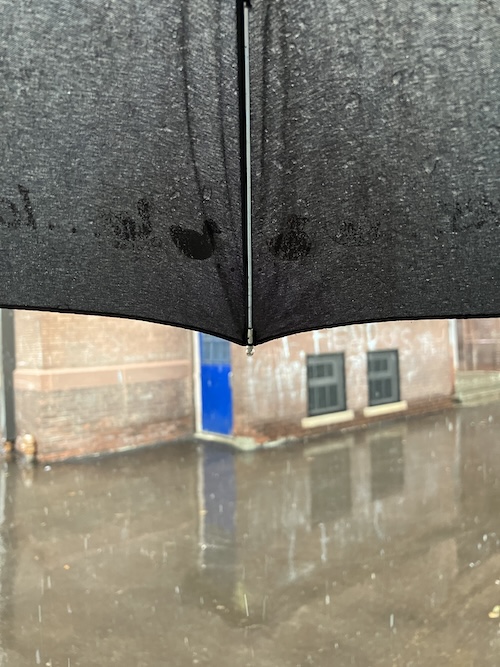
- I feel alone in a world that wishes everything to be simple, polarized, that resists nuance and complexity, where only one truth can be held at any given time, where only one people can be grieveable.
- Longing for light. Longing to be light—lighter in spirit, light-hearted, light on the path.
- Thirty-three years is a long time to be mentored by someone. But not long enough — I wasn’t ready for the news that my work mother died on November 13, 2023.
- With guardianship comes enormous responsibility and each of us has choices in how we take on the safekeeping and preservation of our Charter’s terms — every day — in our conversations, our social media posts, in schools, neighbourhoods, workplaces, clubs, teams, institutions and in all towns and cities in every province and territory.
- How do we know the correct proportions? I’m the same writer this week that I was last week but last week I couldn’t imagine continuing. And then a group of women asked questions, commented, read aloud their favourite passages, and I realized that I’d lost perspective, that this too mattered. Matters.
- Is there anything more bookishly pleasurable than reading on holiday? And feeling that you brought along the exact correct books for your time away?
- I send love to remember what love truly is. I send love to notice, to slow things down. I send love to do something, anything, in a world that often leaves me feeling uncertain, helpless. I send love because I’m beginning to accept the world, us, it all, as it is. I send love, because I’m learning how to receive love. I send love because it both softens and empowers. I send love, because I’ve tried the alternative, and know the feeling of being closed off in fear and judgment and scarcity. I send love because it’s energy opens me, to see, to feel, to trust, to receive.
- Thank you for the first 17 years of this blog. Thank you for being the backbone of my life and giving me something to tether myself to as life swished and swept by.
- The biggest spoon I’ve ever seen was at a periptero in the suburbs of Athens near the port where my Dad docks his boat.
- Every misadventure has had a silver lining. We would have missed numerous adventures if we had not gotten lost. Nor would we have seen magnificent architecture or met wonderful people. And then there are the hidden bars and cafes we have discovered tucked away down tiny, dark alleys.
December 5, 2023
The Clarion, by Nina Dunic
I really loved The Clarion, a strangely shaped novel about loneliness and connection, a quiet story of two siblings launched into the world from a difficult childhood whose adult trajectories (told in alternating chapters) are very different, the narrative reflecting that. Peter’s world is small, and his story takes place over a handful of days, beginning with a monumental one as he auditions for a spot playing trumpet in a part time gig at a local restaurant. Peter is an unlikely performer—he’s nondescript, unassuming, and while he plays the notes, discerning listeners can tell that he doesn’t feel them. He works behind the scenes in a restaurant kitchen—a job his sister got him—and finds connection and release at a local bar whose DJ’s tracks are mesmerizing and allow Peter to be absorbed into the crowd, to become part of something larger than himself.
Whereas his sister Stasi feels she is too much of the world, and has lost herself within it, in serving its goals and spending so much of her life caring for first her troubled mother, and then her brother. Striving to succeed in the corporate world, the hollowness of all this becoming apparent when she’s passed up for a promotion. Her story—reflective of its larger scale—take place over several weeks as she contemplates her grief and listlessness, tries out therapy, and continues an affair that threatens to put her domestic life at risk, all the while just as lonely and lost as her brother is.
Are we all different or are we the same, is a question the novel returns to several times, a question of nature versus nurture, and the idea of a clarion call haunts the story too, a longing for a song to summon everyone, a common humanity. And the beauty of this book are the fleeting moments of connection where such a thing almost seems possible. However meagre, and also everything.
December 4, 2023
Clark Griswold: Not a Good Guy
“Well, that’s an hour and forty minutes I’m never going to get back,” said my eldest child as the credits rolled for National Lampoon’s Christmas Vacation, beloved holiday flick of my youth. And she wasn’t wrong—it was terrible. (I’ve never seen the two earlier films in the franchise, and upon perusing the trailers, I wonder if “not terrible” was never actually the point.) Clark Griswold is an awful person, and while I remember spending earlier viewings rolling my eyes at his idiot neighbours, senile aunt, miserable teenage daughter, and dumbass cousin, now I’m not sure how any of them managed to stand him. Not to mention his wife, the longest suffering of all of them. Can you imagine if YOUR husband invited your entire family for Christmas, and then spent the holiday stapling twinkling lights to your roof because he couldn’t actually stand their presence? And apart from nicer clothes, how different is Clark from Cousin Eddie, really? It made me think a lot about the tropes and stories we took for granted in the 1980s and 1990s, be glad that there is been some progress since in terms of what we expect from men/husbands/fathers—and especially that my kids are wise enough to see it.
November 30, 2023
The Novel and the Museum
One thing I’ve really wished I’ve been able to spend more time talking about this fall is all the reasons why a museum takes up such prominent real estate in my novel about female friendship, and so when I was was asked to write an author talk for my visit to the Islington Reads book club, I knew exactly what my subject would be. The text of my talk is below and you can also watch it on video above!
When I moved to university in the autumn of 1998, the museum was our entire horizon. Literally. An imposing stone edifice occupying a huge city block that was three tall stories high, the Royal Ontario Museum was directly across the road from our all-girls residence at Victoria College in the University of Toronto, and every night the sun went down behind it, a little earlier than it might have if we’d had a less magnificent neighbour.
All of which sounds very impressive, but I—regretfully, and most unimpressively—have no recollection of ever having gone inside the ROM during those years when I lived so nearby. The closest we came was some Toronto film festival gala there and we’d gone across the street to get a glimpse of Denzel Washington while dressed in our pyjamas. I used to walk through the loading dock on its south side to get to my Literature for Our Time classes three days a week in my first year. I worked at Pizza Hut on Bloor Street on the north side, selling not very fresh slices in the takeout window across the street from what is now the Crystal, but what was then the ROM’s Queen Elizabeth Terrace Galleries, opened just in 1984 and demolished barely twenty years later. The Pizza Hut is gone now too, that entire block transformed. No more Swiss Chalet, Bedford Ballroom, or Country Style Donuts. I used to think that cities were like mountains, solid, stone, unmoveable, but it turns out that they’re as ephemeral as everything.
“What lasts?” is a question that’s one of the preoccupations of ASKING FOR A FRIEND, and also a question whose answers I’ve been wrong about again and again throughout my life, in terms of relationships, fads and fashions. The idea of wearing tapered jeans during the years I lived across the road from the ROM would have appalled me, for example. Or that in my third year at university, I would move into an apartment with a friend I was absolutely besotted with, one of the most magical people I’d ever known, and if you’d told me that there would come a time when I would tell you I hadn’t talked to her in 20 years, I never would have believed you. And all the while, my children are listening to ABBA. How can a person ever tell?
In my fourth and final year of university, I moved into an apartment off campus at Dundas and Bathurst, an apartment you’ve already been introduced to if you’ve read my book: “a place up a narrow flight of stairs above a Chinese herb shop, where there wasn’t an actual hearth—the closest thing was an old electric oven where only two of the stove elements functioned, and the oven handle kept falling off. But the kitchen always felt warm, with the window facing south so the light was usually golden.” I still drive by there twice a week when I’m picking my children up from Girl Guides, and this is how it is when you’ve been living in a city for twenty-five years: am I haunting the places I used to know or are the places haunting me?
It’s a weird thing to raise your children around the same neighbourhoods where you spent your formative—and perhaps most nonsensical—years, to push a stroller along that very same block where I once worked at the Pizza Hut, all brand new condos now. On my way to the museum that was once my horizon, but I have a membership these days, and we head inside, exploring hands-on galleries and dinosaur bones. My children are so familiar with the ROM that it’s almost their horizon too, if not literally. And it was within the bowels of that building where the first spark of ASKING FOR A FRIEND was lit.
Which I’d actually forgotten about, totally. “Every time Jess was pregnant, Clara had been the first to know,” is the first sentence of my novel, and what I’ve been telling everyone since the book came out is how it’s always been the first sentence, the novel beginning with two friends connecting for the very first time altogether serendipitously on a Saturday night in December 1998 in a university residence as snow falls outside and museum across the road is lit up for a gala.
But that isn’t true at all.
Because before I ever wrote that sentence, I’d written about Pompeii, inspired by the “In the Shadow of the Volcano” exhibit I took my kids to at the ROM in the summer of 2015. I think I wrote about the strangeness of taking children to see it, about the eeriness of so much life preserved, and also so much devastation, so much death. (The moral of this part of the story might also be that ASKING FOR A FRIEND was a novel born of my anxiety.)
I don’t remember if Jess and Clara were together in the scene, or how much either of them existed as characters yet, nor do I have any way of finding out what was in those pages—though I remember being fond of them—because somehow or another the whole thing got lost. Not from me pouring tea on my laptop even—I checked and that didn’t happen until the following summer. Most likely I simply saved the file on my desktop and then trashed it by mistake.
“What lasts?” Remember? Luckily, I hadn’t got very far into the document, maybe a couple of thousand words or so. I opened a new file and started over again. (These days, I am a passionate user of Dropbox.)
My novel is fiction, its characters’ stories less rooted in autobiography than anything I’ve ever published before. My previous novel, WAITING FOR A STAR TO FALL, was about a young woman who has a secret affair with a charismatic hotshot politician, and while I’ve never been in that situation, I was definitely able to tap into angsty memories of unrequited love from my own early twenties. With this novel, however, while I’ve been asked if I’m Jess or if I’m Clara, I could probably ask many of you the very same thing. I was definitely not present in that common room on the wintry night—I was probably out accosting poor Denzel in my pyjamas.
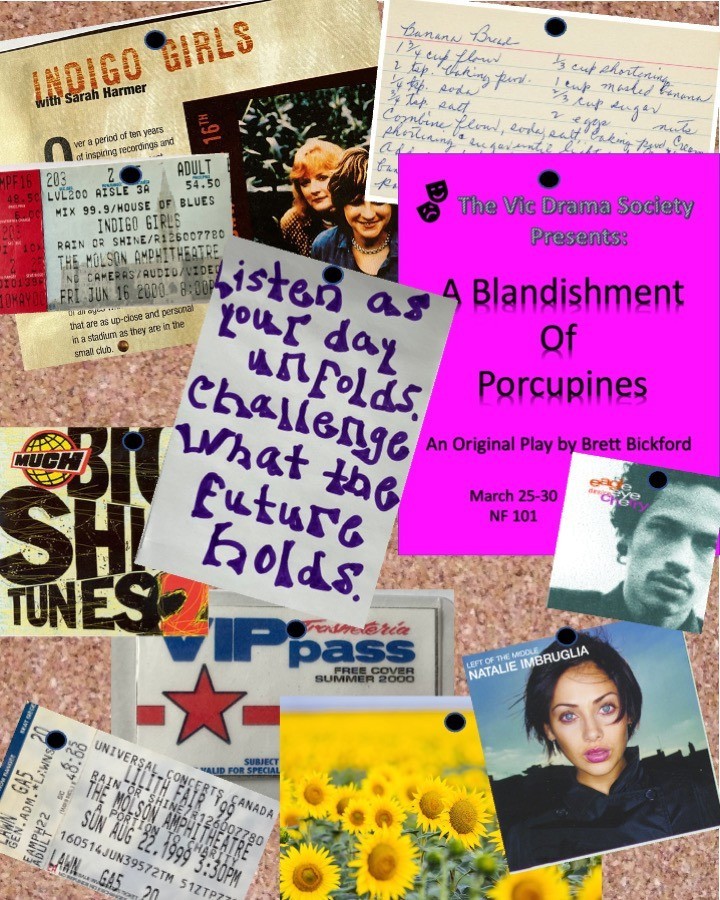
My novel is fiction, but it’s also a kind of museum too, an archive of a particular place and time, my own history preserved in amber, even if I don’t appear as a character. From the book: “Everybody was dressed in the same vintage uniform, flared jeans with soggy hems, second-hand suede and leather jackets, and that smell of wet coats mixed with cigarettes would, for Jess, ever after be a time machine.” I wanted to write about all that, and about being sad all the time and listening to Natalie Imbruglia on repeat, and Big Shiny Tunes 2, and Mmmbop, boys in bucket hats, bad campus theatre, and how subversive it used to feel to haul our mattresses outside, like the whole world was our bedroom.
I wanted to write about what it felt like to be coming into adulthood against the backdrop of 9/11. The way we used to have to go to the library to check our email, and then one day we had internet access at our excruciatingly boring post-grad jobs, and how it brought the world to us. I really did have a job stuffing envelopes at a driving school, and when I showed up on the second day, no one could believe it. I wanted to write about how it felt to be under the sky and convinced you’re the centre of the universe, and I’m not sure if that’s an early-20s thing, or a pre-social media thing before you walked around with a device in your pocket delivering proof that everybody else was out there having fun without you.

In 2011, a decade after we’d lived there, our apartment at Dundas and Bathurst—which was also Jess and Clara’s apartment, the one where the squirrels got in through the ceiling, though in our case it was actually a racoon that lumbered in through a broken window screen, and I don’t remember how we got it out—was literally turned into a museum that was supposed to represent a typical Toronto apartment. I still can’t really believe this happened, and I wasn’t sure I hadn’t made it up entirely until I went back and found the article about it again on BlogTO. At the time, there was a design studio in the first floor shop downstairs, and they’d taken over the apartment upstairs to showcase their work in a home setting—sculptures, furniture, light fixtures. But the ugly linoleum on the floor was the same, and the ancient appliances hadn’t even been replaced. It was weirdest thing, but also bizarrely fitting, that the place where I’d spent some of the most consequential time of my life had been preserved this way, that you could even take a tour—although I only found out about it all after the show had closed and never got to. Which is perhaps for the best, because—as they say—you can’t go home again, and it wouldn’t have been the same. Nothing we ever owned was nice, let alone designed. I would have been looking for the creaky old oak table in the kitchen, a candle stuck in a wine bottle at its centre and wax dripping all down the sides.
So I put it all in my book instead, a book that’s dedicated to the friends who lived with me there, and also to my best friends from high school, all of these women who know things about me that nobody else does or ever will, each of them an archive of the stories of all we’ve shared together. Friendships that have survived, inexplicably, sometimes miraculously, when so many others didn’t. “All Jess ever wanted, in addition to everything, was to know that she and Clara would always be friends.”
What lasts? What survives? These are questions that both my characters investigate in their professional work—Clara does archaeological field work unearthing fragments from ancient hearthstones; Jess is a scholar of folk and fairy tales. Each of them finding in their work what they also are attracted to in each other: Clara, for Jess, is a source of spirit and light; Jess provides Clara with roots and a sense of belonging. And at that particular moment that connects them on that evening in 1998 and in the weeks and months to follow, each is precisely what the other requires, and they become home to each other, which would make for a very best kind of happily-ever-after—except there is really no such thing. In stories, maybe, but not for living things, like city blocks, and human beings, and actual relationships, all of which are as dynamic and ever-changing as nature itself.
What are the odds of any relationship making it, let alone friendships, which lack the cultural rituals, scripts and guidelines with which we navigate romantic and marital relationships? And yet so many friendships do survive, people finding ways to continue to connect over decades, and distance, and tumultuous life changes and other challenges. I still find it mind-blowing that I met my two best friends from high school when we were thirteen years old—an age at which I was wrong about almost everything, but somehow I got that one thing right, that these would be my people. I don’t know if anything has ever been more consequential. And who would I be today without them?
But it wasn’t easy. And that’s also something I wanted to capture in my novel, about how hard it can be to become one’s self in the company of others. To be navigating the particularly shifting ground of one’s twenties and thirties, where every choice seems to have such stakes, and where everybody else’s choices seem to be a reflection—or perhaps, more accurately, a PROJECTION—of your own. Being happy at your best friend’s wedding when you might be brokenhearted. Celebrating your pregnancy when you know that your friend isn’t sure she’s ever going to get to have that baby that she longs for. Of course, we want the best things for our friends, but it can be an aching thing to be toasting their successes when we’re still not sure of the path we’re on ourselves. And even when the paths are parallel—this only makes our friends’ choices seem like more of a reflection of our own, and how do we ever know if we’re doing it right? I think it takes a certain kind of magnanimousness, generosity and strength of character to make through all these life transitions without a little bit of tension, and when I was twenty-five, or thirty, I didn’t possess any of these qualities in abundance. Yet.
It gets easier though—and I don’t remember if anybody ever told me that. That everything wouldn’t always be so fraught, and that I’d come into my own, and so would my friends, and I’d just admire them so much, and be able to respect all the ways in which we’re different and be grateful for the ways in which we’re alike. I’m right in the middle of my 40s now, and I don’t think my friendships have ever been less complicated, which is good because life in general always is, and I have my friends to lean on. Together we celebrate our wins and also our struggles, and I don’t understand the mathematics of it all—how goodness shared is multiplied, and sharing the hard bits makes the load so much lighter.
Which is why I love the ending of the novel, the way I leave Jess and Clara floating, the idea of that ease between them for the first time in a long time, and I like to think that this is their happily ever after. Not that the story is over, but that it will go on like this, that they’ll have found their rhythm, their flow, and that their friendship really will turn out to be one of the great loves of their lives, if not THE one. Each friend finally comfortable with her own self, which makes it that much easier to be comfortable with another, to be at home with each other again in that miraculously way they were when they first found each other.
Which brings us back again to the museum, to 1998, to that building we never went inside (you needed money for that, and we were much too busy watching TLC Daytime), but which was always there, like a great stone giant asleep across the road, as sprawling in geography as it was as a cultural force. As a gatekeeper, an arbiter of whose stories are worth telling, and really I’m talking about the museum as an idea now—and certainly there has been huge progress in the last twenty-five years in terms of thinking about what kind of stories matter, but it’s hardly enough. Because was it just yesterday, or 94 years ago, that Virginia Woolf wrote, in A Room of One’s Own:
“But it is obvious that the values of women differ very often from the values which have been made by the other sex; naturally, this is so. Yet it is the masculine values that prevail. Speaking crudely, football and sport are ‘important’; the worship of fashion, the buying of clothes ‘trivial’. And these values are inevitably transferred from life to fiction. This is an important book, the critic assumes, because it deals with war. This is an insignificant book because it deals with the feelings of women in a drawing-room. A scene in a battle-field is more important than a scene in a shop — everywhere and much more subtly the difference of value persists.”
The feelings of women in a drawing room. In a common room, in a kitchen, a stairwell, a bedroom, sitting around tables, lying on beds, putting on the kettle over and over and over again. Women who are talking to each other, and not even about their relationships with men.
In 1998, just like Jess, I had no idea that I was living blocks away from the address where an abortion clinic had been firebombed just six years before. I never knew that my own reproductive freedom was the result of a battle that had been won just a decade before in 1988. Why did it take me so long to learn that it was a Canadian Union of Postal Workers’ strike in 1981 that helped win paid maternity leave across Canada? Where were the museum exhibits about any of this?

“This is an important book.” Which is a subversive thing to say about a novel whose spine is pink, a novel with women wearing bathing suits on the cover, two women who look happy, even. Each with an arm around each other’s shoulder, and the other arm in the air, like they’re belting out the lyrics to a song they know by heart, the way they’ve come to know each other by heart. A story about friends where no one has to die at the end—not yet, at least.
This is an important book because women’s stories matter, women’s lives in relationship to each other matter too, but for too long such stories have been lost to history, absent from the archives, missing from the museum. The feelings of women in a drawing-room—that’s a book I want to read, and this is the book I wanted to write, a novel that captures a sense of a time I never thought of as a particular one as we were living it, but it’s clear in retrospect, which—I’m beginning to realize now—is always the way with history.
November 30, 2023
My Books of the Year That Weren’t Published in 2023
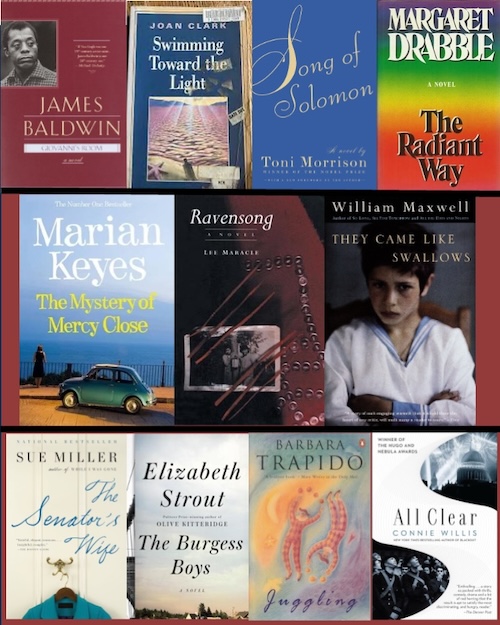
As always, my reading goals involve reading books that aren’t new, and I think I did a respectable job of it this year. Here are my top picks, which include two novels I’d read before but loved in a brand new way.
November 29, 2023
7 Books and 7 Drives
Gary Barwin, in a typical act of originality, has created a wonderful list at 49thShelf called “Six Books on Six Trails,” matching his audiobook listening to the places where he walked with those books in his years. He writes, “There’s an intimate pleasure in listening to books as one walks. The voice speaks only to you. What it is telling you colours your surroundings. It’s a narrative soundtrack, mood music in words. Certain places become associated with certain events in a story or certain ideas discussed in a podcast. And these may pile up to become sedimentary auditory formations… It’s a literary trail map, a walking footnote.”
Which reminded me of the bend of highway that will forever remind me of poor Anne Innis Dagg trapped with a predatory man in an isolated cabin facing a choice between sharing a bed with him or sleeping on the floor with spiders (or something—the specifics have escaped me) even though the highway is in the middle of southern Ontario and the cabin was somewhere in Africa, but the highway just happened to be the place where I was listening to the book.
I don’t listen to audiobooks very often, but when I do it’s in the car with my family on any journey that will take more than a couple of hours, and these books are always a highlight of our trips, becoming intricately connected with the experience, however incongruous the place and subject matter.
*
The Penderwicks series, by Jeanne Birdsall
Highway 11 north of Gravenhurst
We’d listened to audiobooks before, but The Penderwicks series were the first books that really “took” for us, because both our children were old enough to be engaged, and because the stories were interesting and nuanced enough to engage their parents as well. I know we read the first in the series from a book borrowed from the library, but I think all the rest were on audio book. We listened to these books on our summer trips to Muskoka and I remember the dips in the road when Mr. Penderwick was referring to his girlfriend Marianne Dashwood and how I was pretty sure I was onto him. The very last book in the series has little Batty Penderwick all grown up, and I recall finishing it just as we came off Highway 400 to join the traffic of the 401—for both the holiday and the series, we still wanted more.
*
The Watsons Go to Birmingham, by Christopher Paul Curtis
Highway 400 through Barrie, ON
This book was from the same route on the map but during a more recent summer, and I recall driving up through Barrie and listening to the part where (I think it was) the big brother gets his tongue stuck to the wing mirror on the family car in the dead of winter. This is very much a book about the automobile, the Watsons coming from Detroit, as they do, and their huge family car being pivotal to the plot as they family makes its way south to Alabama in 1963. Their father rigs up a system where they can have an actual record player on the dashboard! On the way back a week later, we were driving through Barrie again when we got to the part about the 16th Street Baptist Church bombing, and this novel brought that story to life for me in a way I’d never experienced it before.
*
Pursuing Giraffe, by Anne Innis Dagg
Highway 35 through Norland, ON
We listened to this memoir on our very first trip to Big Hawk Lake, a new journey for us, and that feeling of not knowing where we were going with the story in our ears has woven the two together, so much so that every time we’ve driven by the end of the 404 ever since, I’ve recalled the specific point where Anne Innis Dagg’s boyfriend was being such an absolute jerk as she left him to fulfill her dreams of studying giraffes in the wild during the 1950s. (Spoiler alert: Reader, she married him!) And see my aforementioned point about the predator as we were making our way through Norland, ON, on Highway 35, not a giraffe in sight.
*
Murder on the Orient Express, by Agatha Christie
Limberlost Road, near Huntsville, ON
I can’t remember who recommended Agatha Christie to us for family audiobooks, but we’re forever indebted to them. We borrowed this one from the library and it was not the Kenneth Branagh version, but we loved it all the same, and only got part way through on the journey up to the cottage and throughout the week kept thinking about reasons to jump back in the car and take a trip to town—just so we could hear the next part.
*
Death on the Nile, by Agatha Christie
Highway 7, near St. Mary’s, ON
We listened to most of Death on the Nile this summer on our journey to and from Muskoka, but had some still left over for our camping trip to Pinery Provincial Park a week later (which is a really long trip). When I think of this novel set on a cruise ship in Egypt and all its nefarious characters, I think of the rural roads of Perth county, green fields and tobacco farms, no doubt just as Agatha Christie planned.
*
The Infamous DNF
Highway 35 just south of Dorset, ON
The trouble with the Agathas is that now we don’t want to listen to anything else, but all Agatha all the time gets a little samesy. So we tried a different book for our getaway in August, and perhaps it might have been fitting if our children were younger and we were not all so primed for stories stacked with sex and murder, but we were all bored out of our skulls, and every time we thought the plot couldn’t get any less interesting, it did. We are persistent people and dogged in terms of books, but finally we just couldn’t take it anymore. We’d just taken a little trip to Dorset, ON, and as we drove out of town, we reached our limit. If that audiobook had been a physical thing instead of a file on my husband’s phone, we would have tossed it out the window.
*
Bonus track:
Folklore, by Taylor Swift
On Route on Highway 401 near Port Hope
The ramp up to the Port Hope On Route on the 401 East is where I first heard the beginning to “The Last Great American Dynasty” and though that possibly this surprise Taylor Swift album, released in the middle of the pandemic summer of 2020, might grow on me, and did it ever. Not an audiobook, but literary in its scope and depth, we were listening to this on the way to our camping trip, one trip uncancelled in that year of cancelled things, and by the time we were driving back again a few days later, “Exile” was a song I was singing along to, even if the words weren’t right yet, and we’d come to fall in love with every track, each of which could be its own novel.
November 27, 2023
November
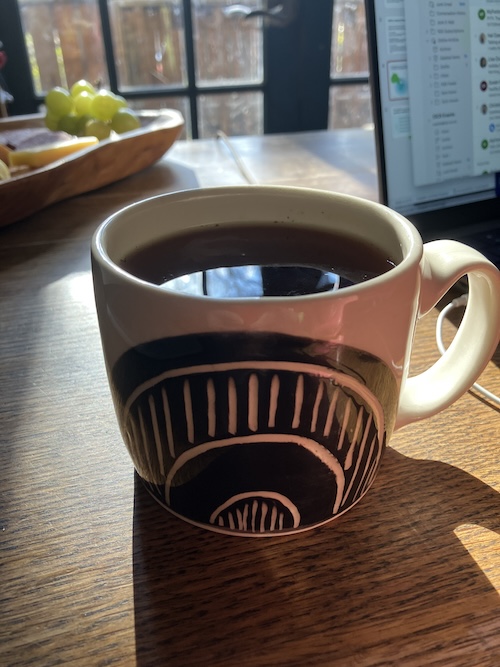
Don’t tell anybody, but I don’t hate November. (I know! Such a controversial statement.) I mean, complete darkness by 5pm is far from ideal, but there is still so much golden sun inside the daylight hours. And then once the sun goes down, our little world inside is just reflected back to us. Last night we had friends for dinner and I turned on the little fairy lights around the door our kitchen, and I’d forgotten our home could be so cozy. It’s the time in year when, really, there’s nowhere else I’d rather be.
November 21, 2023
Gleanings
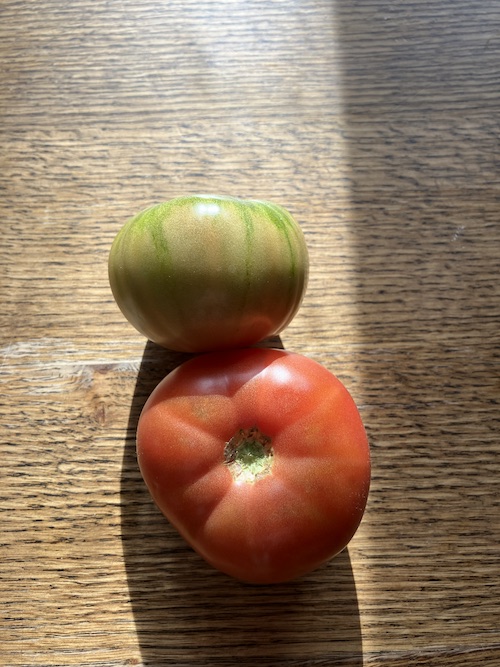
- I do love to inject a bit of novelty into our Advent. And I’ve loved creating a new Yule Log for ELEVEN out of the past THIRTEEN years I’ve been posting here on SSJ (and, before that, on The Lunchbox Season). That’s a top-ten list and a bonus! But I hereby proclaim, “Eleven yule logs is enough.” My work is done in the tree-like cake department. They’re all my babies and they’re all my favourites. And I don’t need to build my catalogue up to a dozen log-cakes, let alone a baker’s dozen.
- This is one of my favourite things about the novella form: the way that worlds are created with just enough carefully crafted elements and strong imagery to bring them alive and to gain your trust, and the rest is on you. Novellas just don’t have the time or the space to hold your hand. I find myself loving that.
- That what we must do is awaken our own creativity, generosity, and create small islands of sanity when we cannot stop the insanity that is occurring elsewhere.
- My Significant Other tends to get depressed around his birthday. And he’s had a hard year. Last year’s birthday was spent in the hospital and this year is a significant milestone so I decided that we needed to celebrate. Really celebrate.
- I did have a minute of thinking, “hmmm, I never even tried this on before today, it would be terrible if I were allergic to yak hair and found out during a six-hour meeting.” But if the yak hair did give me a terrible rash at least I would be sitting with fifty dermatologists, and maybe some of them have cutting-edge creams in their carry-ons. (The denouement: no issues! Me and yak hair sweaters are best friends.)
- I quilted rivers all over the quilt, trying to echo the routes, the oxbows, the chaotic systems of those days. I listened to the news and quilted, hoping to find a way to see something positive in what had happened.
- I read that Bening trained relentlessly for a year to hone her stroke, and averaged four to eight hours in the water, day and night, in all kinds of weather conditions. She was adamant that she would swim every stroke in the film. Nyad was obsessive and single-minded in her pursuit of her goal, and Bening was obsessive and single minded in pursuit of hers. “We build these cages for ourselves in our brains about what we can and can’t do,” Bening says. “We get so used to that, that we sort of even forget that they’re there.”
- It is poisonous stuff, though, and—to bring Amis back into it—there’s such a sense of gleeful bad boy “look at me” about the whole thing, with all the metafictional cleverness deployed as back-up in case the whole “I’m only joking” excuse isn’t enough.
- There was a sense that the tree itself knew it had become a danger and the space it left was given like a gift, not only to the bee balm and juniper, lilac and witch hazel that have barely survived in its shadow but to me, personally. Its stumps invite me to weave ribbons around them and carve them with Cohen’s words.
- i feel that veil is thin, yes, and it is the grey boundaries between past and future in which i feel myself becoming a flock of birds. the neither here nor there, an inability to be present for it.
- Start with the darkness, the unknown hour. Roll over. Squint to see if the glimmer of light could possibly be the beginning of the sun rise. Notice the well-worn thoughts about not getting enough sleep and the old stories from days gone by that still want to dictate how this day with little sleep will go.
November 20, 2023
The Heaven and Earth Grocery Store, by James McBride
The luckiest thing that ever happened to me was the Little Free Library discovery of Deacon King Kong (in hardcover, even!), a novel that turned James McBride into one of my must-buy authors. That book was brilliant, huge in scope, full of play and wisdom and literary magic. And now I’m raving about McBride’s latest, The Heaven and Earth Grocery Store, set in a Pennsylvania community that’s home to Black Americans and Jewish European immigrants, and it’s just as strange and wonderful, a story to get lost in. A novel I’m finding it hard to find words to describe, arriving at “spectacular,” with emphasis on “spectacle,” because there’s just so much going on here. The way that McBride has constructed an entirely literary universe in Chicken Hill, with buildings with something going on (or being stored) on every single story, and tunnels dug underneath all that, the action never quits, which isn’t too say that so much of it’s not going on inside the minds of its incredible characters, fallible people of such feeling and depth. I just loved it, though it really was “a story to get lost in” at first, pitched—as I was—into 1925 with Moshe Ludlow’s vision about Moses as he strives to make a go of his theatre in Pottstown, Pensnsylvania; his wife, Chona, who works behind the counter in The Heaven and Earth Grocery Store and writes furious letters to the editor calling out the town doctor for marching with the Klan; the deaf Black boy being harboured in the basement from government agents who want to send him to a local asylum; Moshe’s bigshot cousin Isaac in Philadelphia; old Malachi, the world’s worst baker, and a tiny pair of cowboy pants; the neigbourhood gossip, whose name is Paper; not to mention Soap, and Fatty, and Nate Timblin, who had a different name before. And how do all these characters connect? Well, therein lies the adventure, a gorgeous tale of community, solidarity, and humanity. Larger than life, and somehow also its essence.
